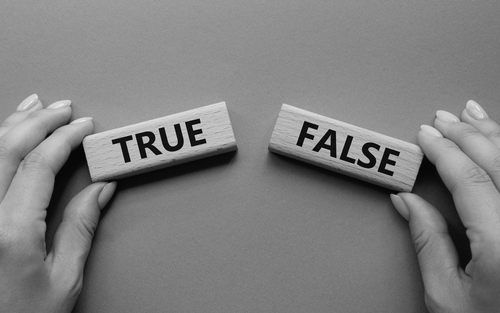“I declare, under penalty of perjury, under the law of North Dakota, that the foregoing is true and correct.” Does this sound familiar? If you’ve ever signed a legal document affirming the truthfulness of its information, you might recognize the phrase, which is coined “an oath” or a formal promise to tell the truth. It is usually written in sworn affidavits and declarations, documents requiring a notary, and applications obligating authenticity. It is also used audibly when swearing in witnesses for depositions and court proceedings, but in a different form. For example, during a court proceeding, an official will ensure a witness on the stand is declaring truthful testimony. This is performed by asking the witness the following question: “Do you solemnly swear or affirm that the testimony you are about to give is the truth, the whole truth, and nothing but, the truth, so help you God?” If the witness responds with “I do”, a sworn statement under oath has been made.
Honesty Is The Best Policy
It is likely you will take an oath at some point in your life. For instance, while serving as a juror or witness in a trial, being sworn into an office, or even completing an application for a driver license. If you are dishonest in these situations you would be breaking the law and could be charged with the crime of perjury. Perjury is making a false statement under oath or knowingly signing a legal document that is false or includes false statements.
Chapter 12.1-11-01 of the North Dakota Century Code explains what perjury means under the law and its consequence. If a person, in an official proceeding, makes a false statement under oath or equivalent affirmation, or swears or affirms the truth of a false statement previously made, when the statement is material and the person making the statement does not believe the statement to be true, they can be found guilty of perjury. “False statement under oath or equivalent affirmation” includes a writing made in accordance with chapters. The penalty for perjury is issuance of a class C felony. This punishment carries a maximum penalty of five (5) years in prison and a $10,000 fine.
Chapter 12.1-11-02 of the North Dakota Century Code is analogous to this chapter as it explains the consequences of making false statements, but the statements may or may not be substantial to the outcome of a matter. If a person, in an official proceeding, makes a false statement, whether or not material, under oath or equivalent affirmation, or swears or affirms the truth of such a statement previously made, and the person does not believe the statement to be true, they can be found guilty of a class A misdemeanor. This punishment carries a maximum penalty of 360 days imprisonment, up to a $3,000 fine, or both.
What If I Didn’t Intend To Do It?
A closer examination of the statues highlights two key words: material and intent. A material statement, meaning an important, essential, or relevant piece of information, affects the outcome of a case or has the potential to influence the court or other body. The misstatement must be related to a material fact that could impact the case. If the misstatement was not material, it may not be considered perjury. Let’s say an individual didn’t intentionally, but rather mistakenly, provided an irrelevant misstatement under oath. In this instance, the statement was neither material to the issue at hand and was not made with the requisite intent.
Perjury In Action
Famous stories of convicted and accused perjurors remind us that lying never ends well. Bernie Madoff, a financier who was the ring-leader of the largest known Ponzi scheme in American history, pled guilty to 11 federal felonies, including perjury and false statements (United States v. Bernard L. Madoff, 626 F. Supp. 2d 420 (S.D.N.Y. 2009)). He was sentenced to prison for 150 years. Barry Bonds, who allegedly lied to a grand jury during the investigation of Bay Area Laboratory Co-op and athletes doping with undetectable steroids, was indicted on felony charges of obstruction of justice and perjury. He ended up being convicted of only obstruction of justice and sentenced to house arrest, probation, and community service.
Conclusion
If you need legal assistance due to accusations of perjury or making false statements, please contact the criminal defense team at SW&L Attorneys by calling 701-297-2890, or emailing us at: info@swlattorneys.com. For related articles on jury duty, trials, and depositions, check out our blog. The information contained in this article and on this website is for informational purposes only. Do not rely on the information on this website as legal advice. Please refer to the full disclaimer here.










